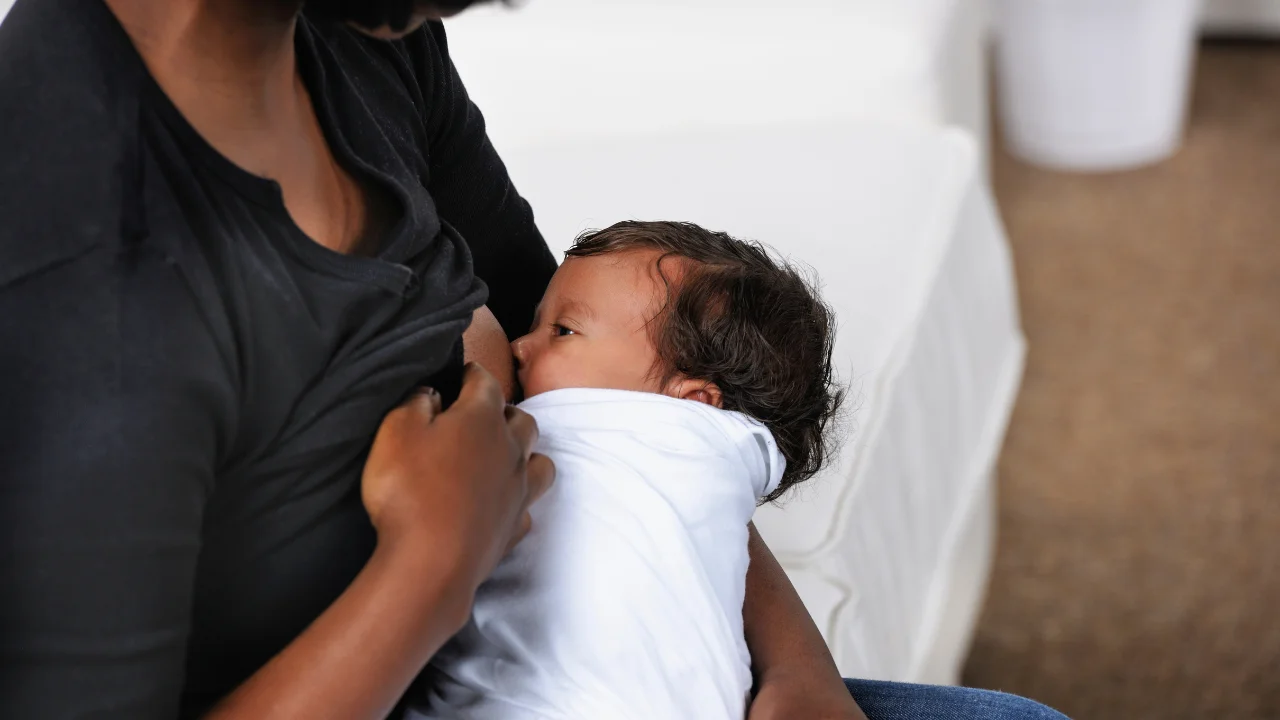
Pregnant while breastfeeding. Can you get pregnant while nursing? The short answer is yes, you can. But isn’t breastfeeding a form of birth control? Well, it’s true that breastfeeding can keep you from ovulating — but only if you nurse your baby exclusively (no formula) and follow a few other rules carefully. Even then, it’s not a good idea to rely on breastfeeding to prevent pregnancy.
IN THIS ARTICLE
- Can you get pregnant while you’re breastfeeding?
- Can I get pregnant if I’m breastfeeding and haven’t gotten my period yet?
- Breastfeeding as birth control
- Can breastfeeding interfere with my pregnancy if I do get pregnant?
Can you get pregnant while you’re breastfeeding?
Yes, you can. So if you don’t want to have another baby just yet, your best bet is to use a reliable form of birth control as soon as you start having sex again after giving birth.
That said, it’s also true that you may not get your period and fertility back for several months (or even longer) after giving birth, especially if you’re exclusively breastfeeding your baby it depends on your hormones.
Can I get pregnant if I’m breastfeeding and haven’t gotten my period yet pregnant while breastfeeding?
Yes! You could start ovulating again at any time without knowing it. That means it’s possible to get pregnant before your period returns.
How? You’re fertile around the time you ovulate, and that happens before you get your period – typically about two weeks earlier. So don’t wait until you have a period to find a reliable birth control method.
Breastfeeding as birth control
Breast milk production delays the return of menstruation. Some women rely on this as a contraceptive technique. It’s called the lactational amenorrhea method (LAM).
But in order to use this method properly, you have to meet certain criteria:
- Your baby must be younger than 6 months old.
- You have to breastfeed at least every four hours during the day and every six hours at night.
- When using LAM, you can’t supplement breastfeeding with formula. (Pumping instead of nursing and feeding your baby solids also make LAM less effective.)
LAM is reported to be 98 percent effective when you meet these conditions exactly. But the rate of effectiveness drops as your baby gets older and your situation changes – like when your baby starts solids or nurses less as she starts sleeping through the night, for example.
Few women in the United States rely solely on LAM to prevent pregnancy, partly because there are so many other easy contraceptive methods available. Also, few women in this country nurse their babies around-the-clock for six months.
If you want to use breastfeeding for natural family planning, talk with your healthcare provider or a lactation consultant about LAM – ideally before your baby is born.
Can breastfeeding interfere with my pregnancy if I do get pregnant?
It’s generally considered safe to continue breastfeeding during pregnancy.
However, you may have some cramping when you nurse because it causes your body to produce small amounts of oxytocin (the hormone that causes contractions). In rare cases, it may be enough to cause preterm labor, so let your ob or midwife know if you think you’re having contractions.
Primarily, though, the important thing is to make sure you get enough calories to support both the baby in your belly and the one you’re nursing.
Also, consider waiting until your baby is at least a year old before you start trying to get pregnant again. Research suggests waiting one to two years after giving birth to conceive another child reduces the risk of pregnancy complications and other health problems.
Read more about


Add a Comment